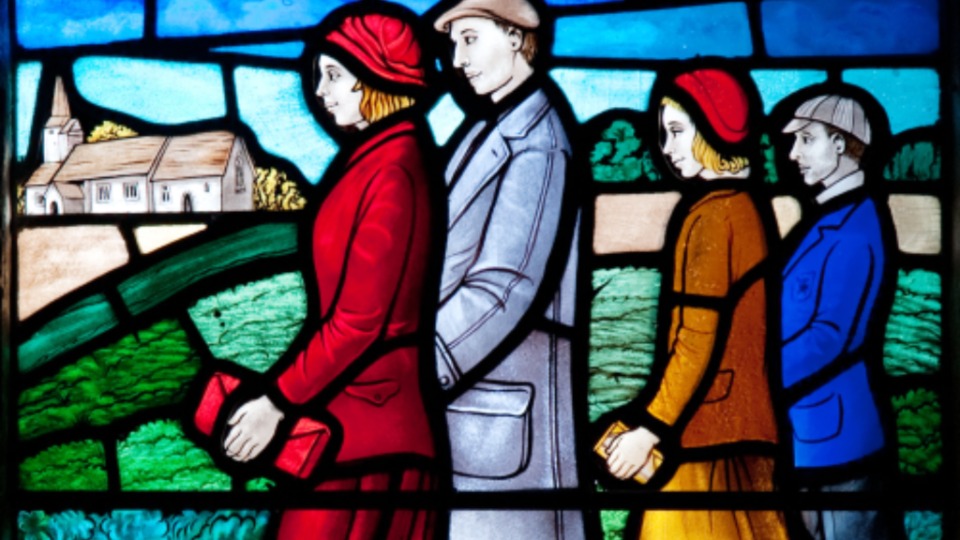For the past 500 years, The Philippines has been host to many diverse beliefs and ideologies. It has been home to a globally diverse number of religions ranging Christianity and its numerous denominations to Islam and many other faiths coming from cultures outside of the country. With the variety of beliefs scattered amongst these more than 7,100 islands, in order for communities to peacefully coexist, there needs to be harmony and acceptance with one another. It is quite important for The Philippines and its citizens to be aware of their rights and practice Religious Freedom.
What is Religious Freedom?

Religious Freedom allows for all to choose, share and live how they believe. This also allows all people to practice their religion however they may choose for as long as it does not infringe on the rights of others.
In the eleventh Article of Faith, a summary of the beliefs of The Church of Jesus Christ of LatterDay Saints, it states: “We claim the aprivilege of worshiping Almighty God according to the bdictates of our own cconscience, and allow all men the same privilege, let them dworship how, where, or what they may.”
The Philippine Supreme Court has ruled that freedom of religion is designed “to protect the broadest possible liberty of conscience, to allow each man to believe as his conscience directs, to profess his beliefs , and to live as he ought to live, consistent with the liberty of others and with the common good.”
Some religious beliefs and practices might conflict, or even contradict those of others. It is not uncommon for people of different faiths to clash in ideology. Such frictions might cause ostracism and indifference between two or more different faiths. Is there a way we all can find common ground?
Be Informed
Being informed is key to achieving harmony within our societies. Being aware of the beliefs and the significance of the practices other faiths exercise enables us to have empathy, even love towards our fellow countrymen whose faith is different from ours.
According to The Dalai Lama, “Because of the great differences in our ways of thinking it is inevitable that we have different religions and faiths. Each with its own beauty. And it is much better that we live together on the basis of mutual respect and mutual admiration.”
Learning of another’s faith can expand one’s horizons and develop respect towards the faith of others. The more we sincerely learn about another religion, the more we see the elements of our faith coincide with theirs.
Respect Others Beliefs

Communicating one’s views with others should be done with utmost care. One should not be critical of another’s beliefs to the point of being contentions. It is healthy to have dialogues and discussions about the differences in belief for as long as they are conducted civilly and with the end in mind that the outcome should be more on the increased understanding of differences rather than making them more confusing. Listening and showing concern for the beliefs of others increases trust and encourages sharing and dialogue.
Elder Dieter F. Uchtdorf, a member of the Quorum of the Twelve Apostles, one of the highest governing bodies of the Church, commented about respecting the faith of others; “We honor and respect sincere souls from all religions, no matter where or when they lived, who have loved God, even without having the fullness of the gospel. We lift our voices in gratitude for their selflessness and courage. We embrace them as brothers and sisters, children of our Heavenly Father. … He hears the prayers of the humble and sincere of every nation, tongue, and people. He grants light to those who seek and honor Him and are willing to obey His commandments.”
Another way to show respect is by building on common beliefs. Almost all religions promote peace and good will towards your fellow beings. This is a common desire across all peoples of the world. Many of the religious tenets of different faiths intersect and fall under similar categories. Common beliefs are linkages that enable people of two differing faiths to come to an agreement on the same principle. Building and uniting under the same common principles encourages understanding and fellowship.
Know Your Rights
There are several laws that defend religious freedom in the Philippines. Though these laws state clearly what freedoms one has to practice one’s faith, they also indicate limitations to these freedoms.
There is also a difference between having the freedom to believe and the freedom to act on one’s belief.
The freedom to believe is one’s right and privilege to believe (or disbelieve) as they please. The freedom to believe is absolute as long as it is within one’s thoughts.
The freedom to act on one’s beliefs is the right and privilege of an individual to manifest his or her beliefs through external acts or omissions provided that they do not interfere with public safety, health, peace or another compelling interest of society. If a religious freedom is violated, the State must prevent, punish and remedy the violations of this right.
Complaints concerning the violation of rights of freedom of religion and worship may be reported to The Commision on Human Rights (CHR) or the Presidential Task Force on Interreligious and Intercultural Concerns, the government agencies that monitor issues relating to religious freedom.
Practicing Religious Freedom in the Community
The Philippine Constitution allows all Filipinos to have and practice their own religions or not, as well as to change them. It also allows one the right to share their beliefs individually or in association with other individuals as well.
In the workplace, the Labor Code requires an employer to respect an employee’s preference as to rest days as required by the law. One is also allowed to wear religious clothing to work or refuse to wear certain clothing as a uniform unless required by law for reasons of public safety, order or welfare.
In public schools, religious classes are allowed and are, however, separate from Values education prescribed by the school curriculum. Students may not be expelled or sanctioned for refusing to salute the flag, sing the national anthem and reciting the patriotic pledge or attend and participate in any school activities if their faith tells them not to do so.
Members of the clergy of any religious order are exempt from military service unless they volunteer to do so.
Philippine law does not exempt individuals on the basis of religion from exemption in taking oaths in legal proceedings.
Religious leaders also reserve the right to protect statements made to them in confidence by members of their congregation unless the person making the confession consents to it